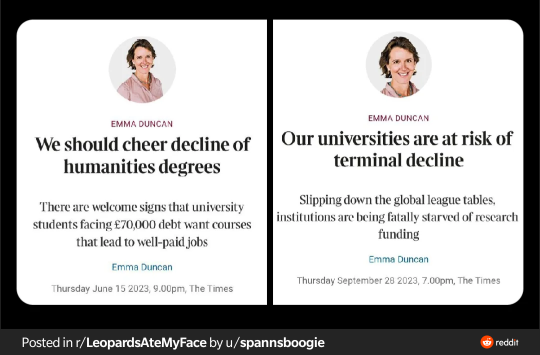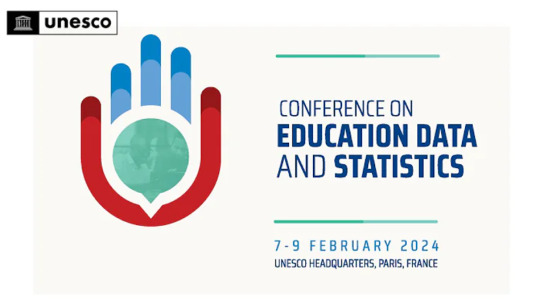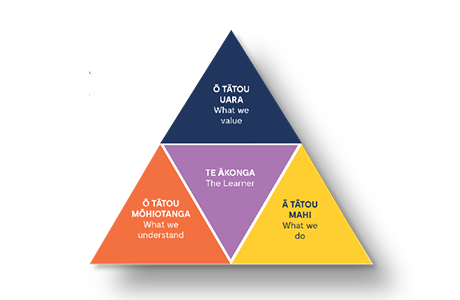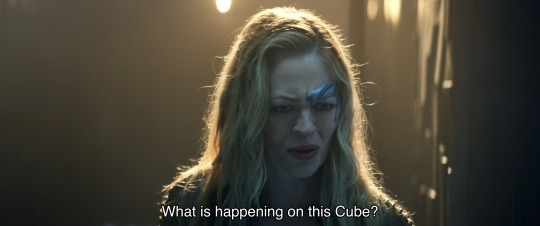#Tertiary sector
Text

Cut your divisions. Slice your faculties. Now bleed out.
#scholarly academia#academia#university#tertiary education#education#climate crisis#education sector#phd life#postgraduate#post capitalism#cambridge university#york university#university of waikato#AUT#university of auckland#ANU#arts and culture#arts and humanities#colonialism#standardization#homogeneity#scholarly publishing#digital inequities
1 note
·
View note
Quote
Health economist Rijo M John pointed out that PPP can become unfavourable for ordinary patients, especially if the “private” dominates the “public.” “The government should promote the PPP model of healthcare delivery only after ensuring sufficient tertiary care facilities in the public sector itself,” John said. He added that when there is already a lack of sufficient tertiary care facilities at the district level, adopting the PPP model for existing hospitals might result in more profiteering by the private sector, with the inevitable increased out-of-pocket expenditure for the general public.
Sumi Sukanya Dutta, ‘Privatisation of district hospitals: Wheels set in motion in 5 states’, Moneycontrol
#Moneycontrol#Sumi Sukanya Dutta#Rijo M John#PPP model#healthcare delivery#India#tertiary care facilities#profiteering#private sector
2 notes
·
View notes
Text
Emphasizing the importance of collective efforts in shaping the landscape of education statistics - 2024 Conference on education data and statistics.

The UNESCO Conference on Education Data and Statistics is the first international event dedicated to establishing a collaborative platform for ongoing dialogue and mutual learning among education statisticians. This inaugural conference marks a significant milestone as the first-ever regular, open forum in the field of education statistics, where we delve into pressing questions regarding the present and future of internationally comparable data. Organized by the UNESCO Institute for Statistics (UIS), in collaboration with UNESCO's Education Sector and the Global Education Monitoring Report, this Conference aims to reaffirm the vital role of Member States as primary agents for coordinating education data and statistics. The conference also seeks to foster international statistical cooperation, emphasizing the importance of collective efforts in shaping the landscape of education statistics.
09:15 – 09:45 Opening of the Conference
09:45 – 10:30 Professor James Heckman, Henry Schultz Distinguished Service Professor of Economics & the Director of the Center for the Economics of Human Development, University of Chicago Winner of the Nobel Prize in Economics (2000)
10:30 – 11:30 High level panel
youtube
youtube
#SDG4#LearningNeverStops#Education#RightToEducation#UNESCO#UNESCO's Education Sector#UNESCO Institute for Statistics (UIS)#Global Education Monitoring Report#education statistics#education 2030#higher education#primary education#tertiary education
0 notes
Text
A Closer Look at Ako Aotearoa’s Tapatoru Programme: Bringing Cultural Values to the Classroom
d
Hey there, folks! Today, we’re diving into something really special – the Tapatoru Programme and Award by Ako Aotearoa.
This isn’t just another educational initiative; it’s a game-changer in how we approach tertiary teaching in Aotearoa New Zealand. Let’s unpack what makes Tapatoru so unique and why it’s making waves in tertiary education.
Background: A Journey Through Time
Did you know that…

View On WordPress
#Ako Aotearoa#cultural competence#cultural excellence in teaching#cultural values in teaching#Culturally Responsive Teaching#educational innovation#educational resources#Inclusive Education#Maori education#Māori and Pacific integration#neurodiversity in education#New Zealand education#New Zealand tertiary sector#online educational tools#Pacific education#professional learning and development#professional teaching awards#reflective teaching practice#Tapatoru Programme#Tertiary Education
0 notes
Text
The problem with using value-added as a proxy for productivity is that value-added represents a combination of output (tangible and intangible) and prices/wages. ‘Productive’ employment in the tertiary sector, for instance, is as much a reflection of wage rates in that sector as any notion of productive output per se (for example, what is the output of a lawyer or a bureaucrat?) Hence, the use of value-added as a shorthand for productivity leads to absurd logical implications, such as the suggestion that a barber in the United States is 30 or more times more productive than a barber in India even though they both ‘produce’ the same number of haircuts per hour (according to the tastes and expectations of their clients), simply because the wage of the barber in the United States is 30 or more times higher. Or else, within the United States, that the ‘productivity’ of a lawyer is 20 times higher than that of a barber. The lawyer’s labour is certainly more valued than the barber’s, whether or not for good reason, but this has little to do with productivity (unless we consider that the power to leverage higher value for one’s labour is, in itself, a form of productivity). In other words, much of what we are picking up in most conventional measures of productivity actually amounts to price or wage differences, not actual effort or output, especially in economies that are increasingly based on services.
Andrew M. Fischer, Beware the Fallacy of Productivity Reductionism
21 notes
·
View notes
Text
So my dad is somewhat of a computer wiz and I asked him about some of the tech stuff in the magnus protocol
my dads says..
"I was involved in a rollout of about 1,000 NT4 workstations over four campuses back in the day (mid to late 90s)
Our machines started at Pentium 120 with 32Meg of RAM and 1.2G hard drive in a mini tower case. Apart from the drive bays in the case front for 3 1/2 floppy disk drives and CD ROM drives they don't look all that different to a small gaming pc today.
The mice still have balls though, the keyboard have big 5 pin DIN plugs but otherwise are just as dishwasher safe as modern ones.
If connected to a network you are very likely to find its Novel Netware 4.1. The networking will look like a thin black cable strung from machine to machine with a little silver T shaped connector on the back of each one, apart from the first and the last they have 'terminators'.
You probably won't be connected to the internet yet, there is probably no TCP/IP on your LAN at all, only Novel IPX. The ZenWorks NT4 workstation management tools from Novel are sublime, it take Microsoft quite a while to copy them.
If you are in our publishing class we will be teaching you Photoshop, Illustrator and Quark Express. If you are in our business course we will be teaching you Office 97 with that bloody paperclip. We will also be teaching you Groupwise, Microsoft haven't copied that off Novel yet so there isn't any Exchange.
If you have email its probably Pegasus, maybe early Eudora. Its unlikely you can email out of the organisation you are in. Internet connected mail is still to come, mind you so is any interoperability between mail systems. You expect attachments to work?
We still taught some things on Windows 3.1 so our machines all boot from the Lan initially to fetch the boot menu. You can choose Windows 3.1, NT4, in some classrooms Win98, or you can re-image you machine if its broken. Thats all done in assembler in the boot sector on the network boot disk image, theres no PXE yet.
Internet arrives one day in the form of a product called "Instant internet", it will share its single built in 36Kb dial up modem with a whole classroom of only IPX connected NT4 workstations if you install the Winsock32.dll file that it comes with.
You are probably looking for Mosaic or early Netscape if you want a web browser, Altavista is likely your search engine.
Better things are coming though soon we have a whole 128K ISDN service to share with about 10 classrooms, we have TCP/IP on the LAN now. Your classroom is still going to have to book when it wants internet access though, as that's still woefully inadequate.
I think the Macs are System 8 or 9 they have not made the jump to the unix kernel of OS X yet, they keep my colleague busy, she seems to be reinstalling the System folders on them on a daily basis.
One day you find I have changed the default home page for all the machines to Google Beta.
My job is done, the world as we know it has been ushered in."
Dad worked In TAFE (only Australians will get that lol) for a few years as well as other tertiary education providers.
This is probably not going to be very relevant for anyone but I figured having some sort of info available could be helpful for other people's writing, fanfic or whatever.
Feel free to send asks for any clarification or further info
29 notes
·
View notes
Text
My workplace, Te Herenga Waka-Victoria University of Wellington, is less than two weeks out from cutting more than 260 jobs from our already sparse workforce. This will have massive negative effects on our students, as well as those who are to lose their jobs.
This has been a result of systemic and long-term underfunding of our sector, and an unwillingness among NZ universities to work with the government to improve the sector.
We need action, and we need it very soon. Our union has launched a petition to ask the government to provide emergency funding to delay these decisions and give us time to work on improving the sector as a whole. Mine is not the only university in this country facing this issue. We need change, and we need it soon.
Please. If you're living in Aotearoa New Zealand, sign the petition linked below. If you're not, please share it as far and wide as you can. People's livelihoods depend on action being taken ASAP.
Sign the petition: Provide tertiary institutions a funding boost to enable good long-term staffing decisions.
#TEU#workers' rights#Aotearoa#New Zealand#Te Herenga Waka#Victoria University of Wellington#VUW#SaveVUW
81 notes
·
View notes
Text
Australia will introduce a cap on the number of new international students it accepts, as it tries to reduce overall migration to pre-pandemic levels.
The nation has one of the biggest international student markets in the world, but the number of new enrolments will be limited to 270,000 for 2025.
Each higher education institution will be given an individual restriction, the government announced on Tuesday, with the biggest cuts to be borne by vocational education and training providers.
The change has angered the tertiary education industry, with some universities calling it "economic vandalism", but Canberra says it will improve the quality and longevity of the sector.
Australia is host to about 717,500 international students, according to the latest government figures from early 2024.
Education Minister Jason Clare acknowledged that higher education was hard-hit during the pandemic, when Australia sent foreign students home and introduced strict border controls.
He also noted, however, that the number of international students at universities is now 10% higher than before Covid-19, while the number at private vocational and training providers is up 50%.
"Students are back but so are the shonks - people are seeking to exploit this industry to make a quick buck," Mr Clare said.
The government has previously accused some providers of "unethical" behaviour - including accepting students who don't have the language skills to succeed, offering a poor standard of education or training, and enrolling people who intend to work instead of study.
"These reforms are designed to make it better and fairer, and set it up on a more sustainable footing going forward," Mr Clare said.
The restrictions will also help address Australia's record migration levels, he said, which have added pressure to existing housing and infrastructure woes.
The government has already announced tougher minimum English-language requirements for international students and more scrutiny of those applying for a second study visa, while punishing hundreds of "dodgy" providers.
Australia to halve immigration, toughen English test
Enrolments at public universities will be pared back to 145,000 in 2025, which is around their 2023 levels, Mr Clare said.
Private universities and non-university higher education providers will be able to enrol 30,000 new international students, while vocational education and training institutions will be limited to 95,000.
The policy would also include incentives for universities to build more housing for international students, Mr Clare added.
But higher education providers say the industry is being made a "fall guy" for housing and migration issues, and that a cap would decimate the sector.
International education was worth A$36.4bn (£18.7bn, $24.7) to the Australian economy in 2022-23, making it the country's fourth largest export that year.
According to economic modelling commissioned earlier this year by Sydney University – where foreign students make up about half of enrolments – the proposed cuts could cost the Australian economy $4.1bn and result in about 22,000 job losses in 2025.
Vicki Thomson, chief executive of a body which represents some of Australia’s most prestigious universities, described the proposed laws as “draconian" and "interventionist", saying they amounted to "economic vandalism" in comments made earlier this year.
Mr Clare accepted that some service providers may have to make difficult budget decisions, but denied the cap would cripple the industry.
"To create the impression that this is somehow tearing down international education is absolutely and fundamentally wrong," he said.
9 notes
·
View notes
Text
Uni of Queensland is planning to close their masters of museum studies.
On 10 May 2024, The University of Queensland wrote to students, industry representatives and alumni advising that it is proposing to phase out the Master of Museum Studies and Graduate Certificate in Museum Studies from 2025. This is exactly 20 years after the course was established.
If this proposal succeeds there will be no tertiary qualifications offered in this specialised field in Queensland.
Queensland is home to a vibrant network of around 400 public museums and galleries, who operate with around 1,600 paid staff and over 15,000 volunteers. Museums and galleries are also integral parts of Australia’s arts and cultural ecosystem which is a $111.7bn industry that contributes 6.5% of GDP.
The University of Queensland’s Master of Museum Studies and Graduate Certificate in Museum Studies programs are incredibly important in training the next generation of gallery, museum, archives and library (GLAM) professionals and filling skills shortages in our sector. Should the University’s proposal succeed, it will have a profound impact on Queensland’s arts and cultural heritage ecology, and future workforce.
12 notes
·
View notes
Text
Is Tertiary Education Education a Scam?
While I am very pro knowledge and skill acquisition and would not declare that higher education is a waste of time, I understand where the "tertiary education is a scam" crowd is coming from.
For many people, myself included, we went to university believing the "go to uni, get good grades and a good well paying job is practically guaranteed" promise. We bought into the idea but upon graduation we realised that the promise was exaggerated or some might say outright false. That promise was true when the world's population was lower
Some of us, myself included, fell for the "it is because you have just a bachelors degree, get a masters then the well paying job is guaranteed". We did that and heart break. We got jobs but not as well paying as we expected.
The truth is many people attended university with the intention of getting lucrative jobs so when we don't get those jobs, we feel duped. The people who had to go into debt to acquire their degrees with the hopes of getting a well paying job are understandably very bitter.
The truth no one told us is that there aren't enough lucrative jobs to go around. There are more qualified candidates looking for high paying jobs than there are high paying jobs; supply exceeds demand. This is the case in all industries and sectors as when people notice an industry or sector is lucrative, they switch to that career or put their children in that career and eventually you have a lot of people in that field that causes unemployment and lower wages in that area. A perfect example of this is the tech industry: Many people believed the IT Industry was the path to financial security but alas the mass layoffs. I know unemployed and underpayed Software Engineers/ Programmers.
Is this a "do not go to university" post? No, absolutely not. This is a if you want a well paying job, you might need to consider a career in healthcare although
14 notes
·
View notes
Text
working on beamstalker “sub-species” designs because maybe???? One day???
I can make them popular and loved with their own game because let’s be honest. They’ll never be a fr breed so the next best thing would be to give them their own game
somewhere between fr and lorwolf style
beamstalkers would have a massive color wheel because heehoo colors.
———
Color and gene layout would be:
Sector:(eye color) (rank for eye variation)
Primary:
Secondary:
Tertiary:
Orbs:
there would be scatters but not of sector
Lemme think omg. I have so many ideas
And then would people play it? Probably. I would. It’s a cool concept
5 notes
·
View notes
Text
"We have to take what useful work remains and transform it into a pleasing variety of game-like and craft-like pastimes, indistinguishable from other pleasurable pastimes except that they happen to yield useful end-products. Surely that shouldn’t make them less enticing to do. Then all the artificial barriers of power and property could come down. Creation could become recreation. And we could all stop being afraid of each other.
I don’t suggest that most work is salvageable in this way. But then most work isn’t worth trying to save. Only a small and diminishing fraction of work serves any useful purpose independent of the defense and reproduction of the work-system and its political and legal appendages. Thirty years ago, Paul and Percival Goodman estimated that just five percent of the work then being done—presumably the figure, if accurate, is lower now—would satisfy our minimal needs for food, clothing and shelter. Theirs was only an educated guess but the main point is quite clear: directly or indirectly, most work serves the unproductive purposes of commerce or social control. Right off the bat we can liberate tens of millions of salesmen, soldiers, managers, cops, stockbrokers, clergymen, bankers, lawyers, teachers, landlords, security guards, ad-men and everyone who works for them. There is a snowball effect since every time you idle some bigshot you liberate his flunkies and underlings also. Thus the economy implodes.
Forty percent of the workforce are white-collar workers, most of whom have some of the most tedious and idiotic jobs ever concocted. Entire industries, insurance and banking and real estate for instance, consist of nothing but useless paper-shuffling. It is no accident that the “tertiary sector,” the service sector, is growing while the “secondary sector” (industry) stagnates and the “primary sector” (agriculture) nearly disappears. Because work is unnecessary except to those whose power it secures, workers are shifted from relatively useful to relatively useless occupations as a measure to ensure public order. Anything is better than nothing. That’s why you can’t go home just because you finish early. They want your time, enough of it to make you theirs, even if they have no use for most of it. Otherwise why hasn’t the average work week gone down by more than a few minutes in the last sixty years?
Next we can take a meat-cleaver to production work itself. No more war production, nuclear power, junk food, feminine hygiene deodorant—and above all, no more auto industry to speak of. An occasional Stanley Steamer or Model T might be all right, but the auto-eroticism on which such pest-holes as Detroit and Los Angeles depend is out of the question. Already, without even trying, we’ve virtually solved the energy crisis, the environmental crisis and assorted other insoluble social problems.
Finally, we must do away with far and away the largest occupation, the one with the longest hours, the lowest pay and some of the most tedious tasks around. I refer to housewives doing housework and child-rearing. By abolishing wage-labor and achieving full unemployment we undermine the sexual division of labor. The nuclear family as we know it is an inevitable adaptation to the division of labor imposed by modern wage-work. Like it or not, as things have been for the last century or two it is economically rational for the man to bring home the bacon, for the woman to do the shitwork and provide him with a haven in a heartless world, and for the children to be marched off to youth concentration camps called “schools,” primarily to keep them out of Mom’s hair but still under control, but incidentally to acquire the habits of obedience and punctuality so necessary for workers. If you would be rid of patriarchy, get rid of the nuclear family whose unpaid “shadow work,” as Ivan Illich says, makes possible the work-system that makes it necessary. Bound up with this no-nukes strategy is the abolition of childhood and the closing of the schools. There are more full-time students than full-time workers in this country. We need children as teachers, not students. They have a lot to contribute to the ludic revolution because they’re better at playing than grown-ups are. Adults and children are not identical but they will become equal through interdependence. Only play can bridge the generation gap."
-Bob Black, The Abolition of Work
3 notes
·
View notes
Note
🔥 Maoism? :3
the white maoist is a meme but I constantly fail to see the utility maoism can have in imperial core countries beyond taking some very specific elements from the philosophy. Maoism is china's path to socialism, and that also means that it's not the path to socialism of countries that have almost nothing to do with Mao-era China. Mao's theory focuses on the aspects of an overwhelmingly rural nation and it's written for freshly alphabetized or alphabetizing peasants. It will not get you far in a country where the tertiary sector is 80% of the economy and almost everyone has a high school education at minimum. As much as it's different, Maoism is a specification of marxism-leninism or bolshevism to the context of early to mid 20th century China. I think this might be unpopular because just in Spain there are 3 currently active maoist parties.
Today's context is also not like 1920's USSR, but marxism-leninism was developed in ex-imperialist countries like Russia or Germany, and it has kept modernising to today. It's just silly to apply Maoism to Canada
5 notes
·
View notes
Text
"This is why the UK signed an agreement to join the Comprehensive and Progressive Agreement for Trans-Pacific Partnership (CPTPP) and is looking to sign up to agreements with India and South America. There are tens of millions of middle-class families, in those regions, eager to send their children to UK Universities for one of the best educations money can buy.
"The UK government are eager to have them because their money helps to subsidise our tertiary education sector.
"This is why private contractors are so keen to keep building more and more PBSA. There is an almost inexhaustible supply of customers, all more than happy to contribute to their profits."
And our own middle class and rich. This is how students can be big gentrifiers, and how unis can play a part in destroying a cities' heritage and culture, when they "regenerate" an area to build shite student housing
In Nottingham they knock down historic buildings for shite student lets, here they've built gated estates designed to keep Tarquin and Henry safe from the rugged hard face northern locals
9 notes
·
View notes
Text
Reimagining Teacher Education with AI and Ed-Tech Solutions: Tackling the Complex Challenges of a Wicked Problem with GPT and Other Tools
Discover how AI and ed-tech solutions can reimagine teacher education, tackling the complex challenges of a wicked problem. Explore the power of GPT and other tools to develop virtual teaching assistants, personalized PLD platforms, and more. #edtech #AI
AI and Ed-Tech solutions may be just around the corner
Education is a “wicked problem” in the sense that it is a complex, multifaceted issue that has no simple, clear-cut solutions. I wrote about this here a long time ago.
The challenges faced by educators and policymakers are unique and constantly evolving, making it difficult to identify effective strategies and solutions.
With the rapid…

View On WordPress
#AI#augmented reality#blockchain#ed-tech solutions#Education#GPT#Graeme Smith#micro-credentials#natural language processing#New Zealand tertiary education sector#Personalized Learning#Teacher Education#thisisgraeme#training program#virtual teaching assistants#vocational education
0 notes
Text
I really find it interesting how different Seven and Hugh are post-severance.
Seven was proud to be Borg. Hugh seemed just like a regular Drone as opposed to Seven of Nine, Tertiary Adjunct of Unimatrix 01.
Unimatrix 01 is the closest to the Borg Queen and by how the Borg Queen acts with Seven, it feels like Seven is one of the few chosen to replace her.
Some personality seems to have been retained, especially for those who 'grew up' in the Collective.
Hugh was more amenable and open to change, more confused by what was happening to him.
Seven was fully aware of her function, she was the chosen Borg representative to speak for the Borg collective when Janeway requested one.
Seven was very resistant and has several occasions tried to return to the Borg.
It is also interesting to me that for a long time in Voyager, she identified as Borg.
Hugh coined the term xBs as a way to name themselves and take back the name.
It's interesting to me that Seven used the term once when speaking to Elnor in season 1 but mostly, I think Seven thinks of herself as Borg.
Her feelings towards being a Borg and Human are still complicated and it got only more complicated the moment Voyager returned to the Alpha Quadrant.
It seemed like she tried out the more Human side of herself and used 'Annika' as a name but that moment of experimenting on that name usage died the day Icheb died and realized how much she was used and betrayed.
For Seven she is both Human and Borg but she knows she can't comfortably identify herself as Borg because of how much harm the Borg has done to... well, everyone. She's been part of the Collective that's assimilated worlds, she knows this well.
It's a terrible thing to identify as for everyone, it's a complicated premise at best but it's the identity that for better or worse, Seven felt more comfortable with.
In season 2 of Picard, we learn that Seven hasn't been at peace with herself for 20 years because she has been trying to deny her Borg identity.
In Hope and Fear in season 4 and even up to season 6 (as far as I'm up to in the rewatch) Seven's been ambivalent about returning with the Voyager crew back to the Alpha Quadrant.
(And as we know now Seven's fears are founded).

"If we do return to Sector 001 will I adapt to Human civilization a single Borg among billions of individuals?"
Seven did adapt, she trained herself to adapt more Human mannerisms and speech patterns. Trained herself to be an individual the way people of Alpha Quadrant would find more acceptable but in her heart of hearts she is both Human and Brog.
Meanwhile, Hugh seems more comfortable with being identified as an xB. A reclamation and a new term for himself and his other fellow Borg cube members.
Also, I realized rewatching the scene where Seven rescues Elnor, she fell back to her old speech patterns:

"What is happening on this Cube?"
It's interesting for Seven the Artificat is still the Borg Cube. I like that characters who were former Borg drones have complicated and diverse opinions and thoughts about their former identity. I like that Hugh is all but ready to move on from being an xB.
And Seven struggles with it more. I wish Hugh had lived because I wanted more interactions and discussions between Seven and Hugh.
Sure Picard and Seven have a shared experience but in the degrees of shared experience, Hugh and Seven's experience are more aligned. Picard and Janeway would have similar experiences in being Borg.
In a screwed-up sort of way, most of Starfleet now knows how Seven feels as a Borg and as an individual.
#thinky thoughts#seven of nine#hugh of borg#hugh | third of five#star trek#star trek: picard#star trek voyager#picard spoilers#long post
21 notes
·
View notes